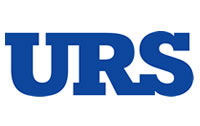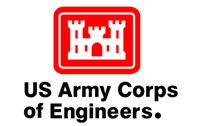What a dog’s run-in with a staircase teaches us about assigning new tasks.
By Tom Moriarty for Plant Services Magazine
Plant Services, January 3, 2017
Maggie is our beautiful, solid black German Shepherd. She is a stunning specimen. Maggie was five or six years old when my wife adopted her from the local animal shelter (where everyone should get their pets). We knew very little of her earlier life with her previous owner. She loves people, especially little children, and behaves very well. When we take her for walks around the neighborhood, people stop what they are doing to watch her graceful strides and her striking appearance. We often hear people in the distance say, “What a beautiful dog.”
In October 2016, Hurricane Matthew was bearing down on Florida, threatening to rake nearly the entire East Coast with over 100-mile-per-hour winds, flooding, loss of power, etc. Not being the adventurous person I used to be, we decided to find a dog-friendly hotel in Orlando to ride out the worst of the storm. It is in this hotel where Elegant Maggie provided a leadership metaphor.
No first-floor rooms were available, so we got a room on the second floor, on the side of the hotel that had a nice area where we could take her for walks. I took Maggie’s leash and led her, with her elegant, graceful strides, to the side entrance to the hotel. Predictably, I heard another guest across the parking lot say, “Wow, what a beautiful dog” as we walked. I got to the door with the smile of a proud father after hearing the comment. I swiped my room key card, opened the door and walked into the building. Immediately to the left was the stairwell.
As we started up the stairs, I did not think; I just ascended the first couple of steps. Suddenly the leash tightened as Maggie refused to proceed. It had never occurred to me, but Maggie had never seen or had to negotiate a flight of stairs! Her body language was telling me that she did not know what to do. Our home is a ranch-style house, with all rooms on one level—no stairs. With me gently pulling on the leash and encouraging her to follow me, she began to slowly walk up with me.
Elegant Maggie, walking on the flat ground, was a sight to behold: beautiful, sleek, graceful strides. Maggie on unfamiliar stairways was not so. More like clumsy, awkward, spasmodic Maggie … I burst out laughing at the sight of her trying to move her four legs in any coordinated manner. We finally made it up the two flights of stairs and into the hotel room. Over the course of the next 24 hours Maggie had to negotiate the stairs several times; it didn’t get better.
So, what does this have to do with leadership?
First, you shouldn’t laugh and make fun of someone who is having difficulty. (Maggie is a dog; I don’t think she understands ridicule. But don’t ever do that to a person. Even when they can’t hear you.)
Second, we often assume things about people. We see Elegant Maggie in most day-to-day activities, and may not know about their clumsy tendencies. Assuming someone is capable can set them up for problems. We ask people to take on responsibilities without knowing whether they are comfortable taking on those tasks. The only way to find out what someone can do is to provide opportunities for them to do representative tasks. Don’t just dump responsibilities on people. Talk with them. Ask them what they need to be successful, and support them.
Third, an encouraging tug from someone who believes in you may be enough to get you started, but continued coaching and an adequate amount of repetition are needed before confidence and good performance can be anticipated.
These lessons are particularly true when a tradesperson or staff engineer is being considered for a supervisory position. Don’t assume that he or she has the experience and skills needed to be successful. Provide productive leadership training. But of equal importance, provide coaching and hold them accountable to practice the leadership training. Work with them enough so they are capable and confident when they are ultimately assigned to a supervisory position.


















